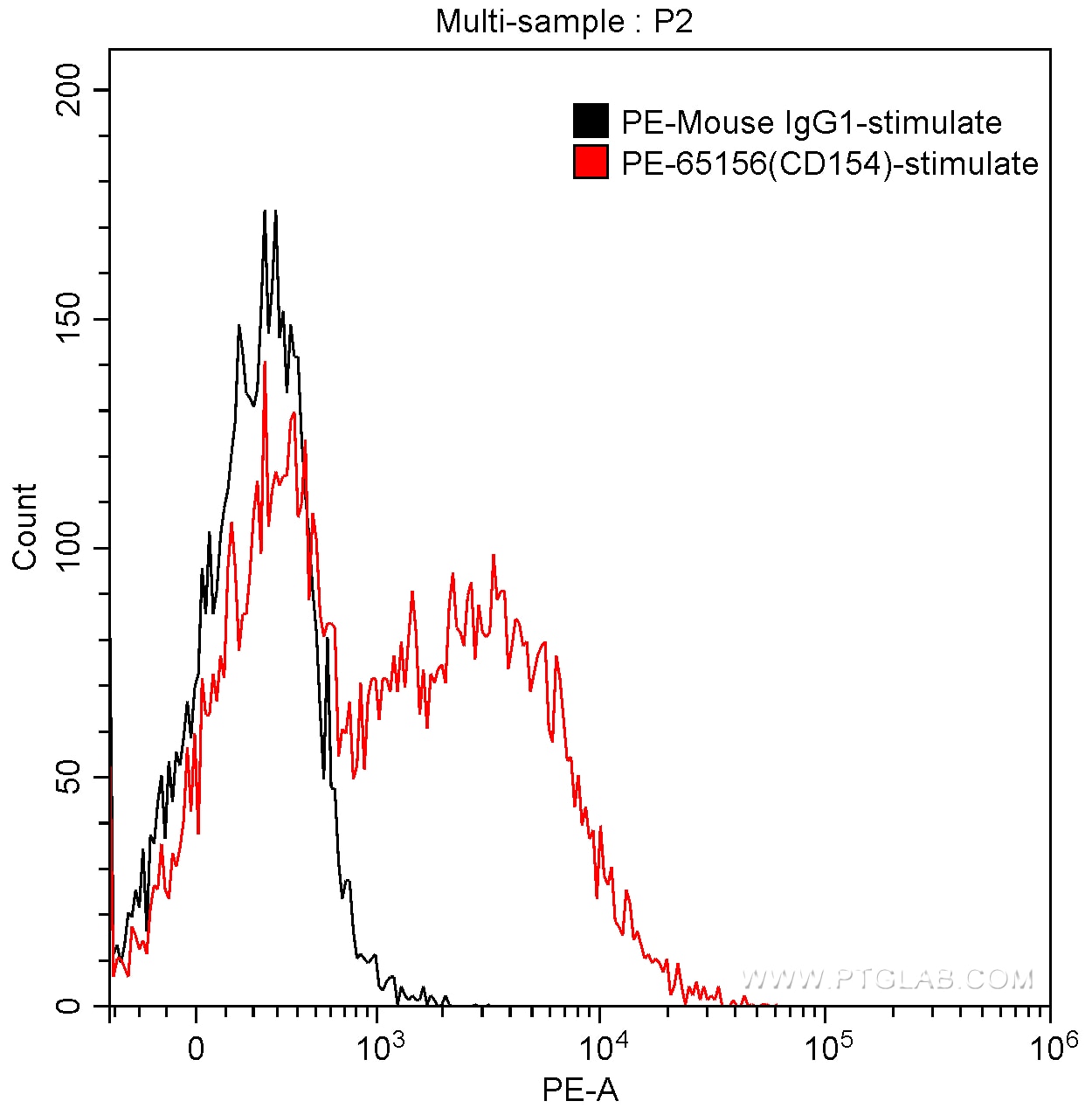Anticorps Monoclonal anti-CD154
CD154 Monoclonal Antibody for FC
Hôte / Isotype
Mouse / IgG1, kappa
Réactivité testée
Humain, primates non humains
Applications
FC
Conjugaison
PE Fluorescent Dye
CloneNo.
24-31
N° de cat : PE-65156
Synonymes
Galerie de données de validation
Applications testées
| Résultats positifs en cytométrie | lymphocytes de sang périphérique humain, |
Dilution recommandée
| Application | Dilution |
|---|---|
| This reagent has been pre-titrated and tested for flow cytometric analysis. The suggested use of this reagent is 10 µl per 10^6 cells in a 100 µl suspension or 10 µl per 100 µl of whole blood. | |
| Sample-dependent, check data in validation data gallery | |
Informations sur le produit
PE-65156 cible CD154 dans les applications de FC et montre une réactivité avec des échantillons Humain, primates non humains
| Réactivité | Humain, primates non humains |
| Hôte / Isotype | Mouse / IgG1, kappa |
| Clonalité | Monoclonal |
| Type | Anticorps |
| Immunogène | protéine de fusion CD154 humaine |
| Nom complet | CD40 ligand |
| Masse moléculaire calculée | 261 aa, 29 kDa |
| Numéro d’acquisition GenBank | BC071754 |
| Symbole du gène | CD40 Ligand |
| Identification du gène (NCBI) | 959 |
| Conjugaison | PE Fluorescent Dye |
| Excitation/Emission maxima wavelengths | 496 nm, 565 nm / 578 nm |
| Forme | Liquide |
| Méthode de purification | L'anticorps purifié est conjugué à la R-phycoérithrine (PE) dans des conditions optimales. Le conjugué est purifié par chromatographie d'exclusion de taille. |
| Tampon de stockage | PBS with 0.09% sodium azide |
| Conditions de stockage | Store at 2-8°C. Avoid exposure to light. Stable for one year after shipment. |
Informations générales
The CD40 ligand (CD40L, TRAP, CD154), a member of the TNF superfamily of ligands, is expressed as either a 33-kd transmembrane homologue or 18-kd soluble form (sCD154). CD40L is primarily expressed on activated CD4+ T cells and on a small proportion of CD8+ T cells and platelets. It binds to CD40 on antigen-presenting cells (APC), which leads to many effects depending on the target cell type. It has been suggested that CD40/CD40L interactions regulate oxidative stress and affect various signaling pathways in both the immunological and the cardiovascular systems. The CD40/CD40L system is also involved in tumorigenesis. Its expression is tightly regulated, and abnormal levels of CD40L are associated with the pathogenesis of atheromatous plaque destabilization and thrombotic events. Multiple mutations in CD40LG gene have been identified that are associated with hyper-IgM immunodeficiency syndrome type 1.
Protocole
| Product Specific Protocols | |
|---|---|
| FC protocol for PE CD154 antibody PE-65156 | Download protocol |
| Standard Protocols | |
|---|---|
| Click here to view our Standard Protocols |


